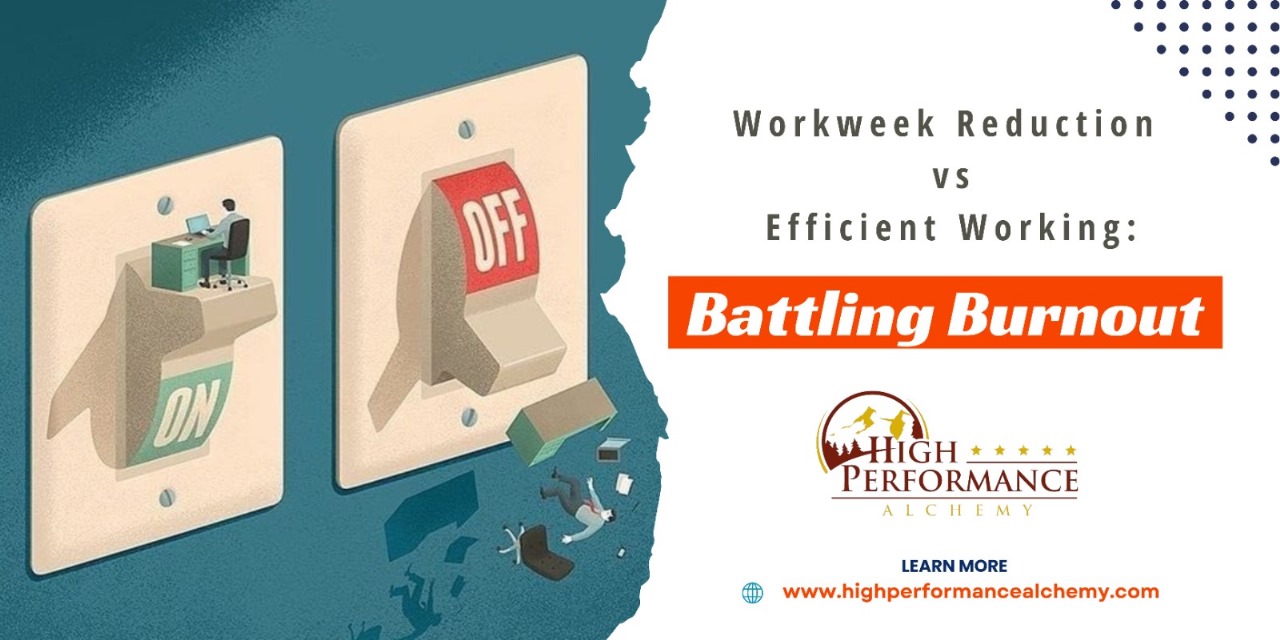Burnout, a pervasive issue in today’s work culture, takes a toll on well-being and productivity. As we strive for a healthier work-life balance, we are confronted with two strategies: reducing the workweek or focusing on efficient working.
Here, we will explore both approaches, shedding light on their pros and cons. Along the way, we will unveil shocking facts about the impact of burnout on well-being, providing you with a comprehensive perspective to make an informed choice.
The Burnout Dilemma: Impact on Well-being
Before diving into the strategies, it’s essential to understand the profound impact of burnout on well-being.
Shocking Fact 1: Burnout and Mental Health
A study published in the journal Psychological Science found that burnout is associated with an increased risk of mental health problems, including anxiety and depression. Those experiencing burnout are more likely to struggle with their mental well-being.
Shocking Fact 2: Physical Health Consequences
Burnout doesn’t stop at affecting mental health; it also impacts physical health. Chronic stress, a key component of burnout, has been linked to cardiovascular problems, weakened immune systems, and even a shorter lifespan.
Shocking Fact 3: The Global Burnout Epidemic
Burnout is a global issue. The World Health Organization recognizes it as an occupational phenomenon, emphasizing its prevalence worldwide.
Beating Burnout: Burn Bright, Not Out – The Path to Wellness
Reducing the Workweek: A Step Towards Balance
One approach to combatting burnout is reducing the workweek. Advocates argue that fewer hours can lead to increased job satisfaction and a healthier work-life balance.
The Pros of Workweek Reduction
Reduced Burnout: A shorter workweek can alleviate chronic stress and prevent burnout from taking hold.
Improved Work-Life Balance: With more leisure time, employees can focus on personal interests, spending time with loved ones, and recharging.
Increased Productivity: Studies have shown that reduced work hours can lead to increased productivity during the hours worked.
The Cons of Workweek Reduction
Potential Loss of Income: For some, a shorter workweek means a reduction in income, which may not be feasible for those with financial obligations.
Workload Compression: A reduced workweek can lead to increased pressure to complete tasks within a shorter timeframe.
Industry Suitability: Not all industries or roles are conducive to a shortened workweek, making this approach impractical for some.
Efficient Working: Maximizing Productivity
On the other side of the spectrum, efficient working focuses on optimizing the hours spent at work to achieve greater productivity and minimize burnout.
The Pros of Efficient Working
Maintaining Income: Employees can maintain their income while still benefiting from better work-life balance.
Lower Stress Levels: By eliminating time-wasting activities and distractions, efficient working can reduce stress.
Career Advancement: Employees who consistently deliver high-quality work are more likely to advance in their careers.
The Cons of Efficient Working
Potential for Overwork: In the pursuit of efficiency, employees might feel compelled to work longer hours.
High Expectations: Efficient working can create high expectations, leading to increased pressure to perform.
Requires Discipline: Achieving efficiency often requires strong self-discipline and time management skills.
Finding the Balance
The ideal approach to reducing burnout might not be an either/or scenario but a blend of both strategies. Here’s how:
Set Realistic Boundaries: Establish boundaries to prevent overwork, regardless of your chosen strategy. Communicate your limits to employers and colleagues.
Prioritize Self-Care: Make self-care a non-negotiable part of your routine. Whether it’s through exercise, mindfulness, or hobbies, take time to recharge.
Time Management: Regardless of your workweek length, efficient time management is key. Minimize distractions, prioritize tasks, and maintain focus during working hours.
Advocate for Flexibility: If possible, advocate for flexible work arrangements that align with your personal well-being needs.
Regular Assessments: Periodically assess your well-being and job satisfaction. Adjust your approach as needed to maintain balance.
In the battle against burnout, there isn’t a one-size-fits-all solution. Reducing the workweek and efficient working each has its merits and drawbacks. The key is to strike a balance that aligns with your individual needs and circumstances.
By understanding the impact of burnout on well-being and considering the pros and cons of these approaches, you can make informed decisions to reclaim your work-life balance, maintain productivity, and safeguard your health.
Ultimately, the choice is yours – whether you opt for a shorter workweek, efficient working, or a harmonious blend of both, the goal is to beat burnout and thrive in both your professional and personal life.
Visit our website,
www.highperformancealchemy.com
To explore opportunities for collaboration and assist you and your team in achieving your objectives, let’s work together to pave the path toward success.

